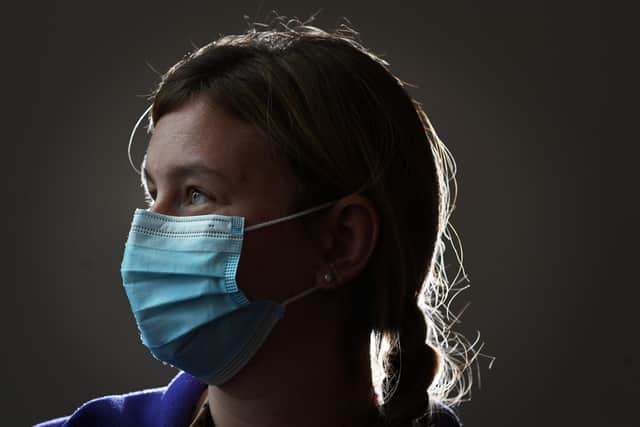Long-term aspiration should be for a society in which care and support is free at the point of need - Stephen Cottrell, Archbishop of York
The subject at hand was care and support for adults in England, but in order to address that the Commission began with articulating a wider vision for society. It is so tempting, and very easy, to get bogged down in negativity about care and support, or to focus on narrow technical questions, rather than to consider the nature and purpose of this. Before we decide how to fund care and support, we need to commit ourselves to a vision of what it means to be a caring society.
We are under no illusions: life is hard out there for many people who are particularly affected by care and support, or the lack of it. Too many people who need care, family carers and care workers alike, are not able to live full lives because of the barriers placed in their way. That is why the Commission has developed a hopeful, ambitious and achievable vision of what care and support could be like if we work together.
Advertisement
Hide AdAdvertisement
Hide AdIn its new report, ‘Care and Support Reimagined’, the Commission has developed three big ideas. I believe they could make a real difference.


First, we need to rethink attitudes to care and support. Rather than thinking narrowly about social care as the practical tasks that people need in order to get through the day, we need to think much more widely about the care and support that we all need in order to live flourishing lives. Care and support is everybody’s business. At different times in our lives almost all of us will need care and support and every single one of us has the capacity to give and care and support to others. God has created us to be relational, caring beings. We are asked to love our neighbour as ourselves.
Therefore, we need a new approach to care and support that recognises the innate value and dignity of every single person and where all of us, individuals, communities and government, have a part to play. You might call it ‘one another care’. And this begins with our own attitudes as individuals, never seeing older people and disabled people as burdens to be managed but as gifts to be cherished. In our Church, that begins with us proclaiming loudly and clearly that each of us is made in the image of God, known and loved deeply for who we are, not simply for what we contribute.
Second, we need to rebalance roles and responsibilities. When it comes to health, there has been a long-standing consensus about how the system should be run: we pay into a contributory tax system and when we need healthcare ourselves it will be available free at the point of need, regardless of wealth or income. This is rightly a source of huge national pride and a fundamental part of our social fabric.
Advertisement
Hide AdAdvertisement
Hide AdBut there is no such consensus when it comes to care and support, which is why the Commission is calling for the development of a National Care Covenant. This will set out our mutual responsibilities as individuals, families and communities, alongside local and national government. The Covenant would be overseen by national government, but developed through a process of sustained public engagement, working with the necessary stakeholders and taking its lead from the priorities of people who are most affected by care and support. Based on what it has heard through its comprehensive listening and engagement, the Commission has made suggestions about what it hopes would be reflected in the outcome of the Covenant: more investment in, and emphasis on, community-led support; a new deal for unpaid carers; a stronger role for the state; and a renewed commitment to our responsibility as engaged citizens.
Third, we need to redesign the way care and support is organised with a system that truly provides for everyone and from cradle to grave. Frankly, it is an anomaly in our health and social care settlement that every penny of a person’s cancer treatment can be paid for on the NHS, but a person living with dementia must meet a threshold of extremely high need and low means in order to qualify for funded support.
Our long-term aspiration should be for a society in which care and support is free at the point of need, regardless of wealth or income, provided in a range of ways that reflects the diversity of care and support needs.
In the meantime, the Commission has called for a system that is simpler to navigate, with people who draw on care and support and their families given more trust about how they manage their personal budgets, and a clear assessment process. Churches have an important role to play alongside other faith groups in rolling out a universal offer of first-contact help in the community.
Yes, this is going to cost money, but the demographic reality means we are going to be paying more for care and support one way or another.
Stephen Cottrell is the Archbishop of York.